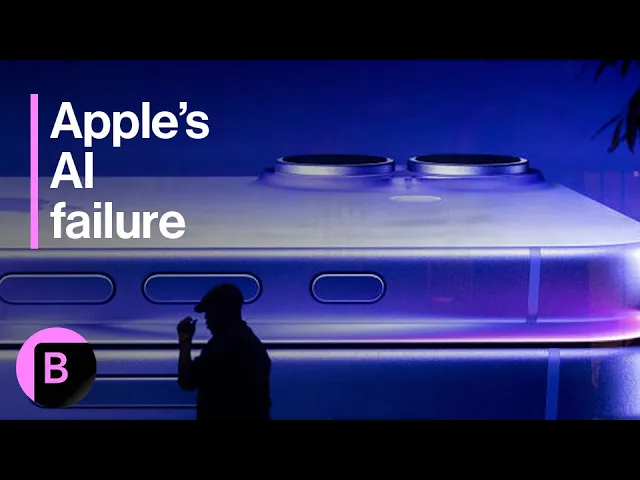Apple’s AI Failure Could Hurt the iPhone

Apple's AI gamble may backfire
In a market where timely innovation is currency, Apple's cautious approach to AI integration has raised eyebrows among industry watchers and consumers alike. The tech giant known for setting trends appears to be falling behind in the artificial intelligence race, with potential consequences for its flagship product—the iPhone. As competitors race to embed AI capabilities into their devices, Apple's methodical pace might be its Achilles' heel in maintaining market dominance.
The AI dilemma Apple faces
-
Late to market strategy: Apple has historically waited to perfect technologies before implementation, but the AI revolution's pace may not afford them this luxury. While Samsung, Google, and others are already shipping devices with on-device AI capabilities, Apple's offerings remain notably absent of comparable features.
-
Hardware limitations: Current iPhone models reportedly lack the RAM necessary to process complex AI tasks locally. This hardware constraint presents a significant barrier to implementing the kind of on-device AI processing that competitors are already offering, potentially forcing Apple to rely more heavily on cloud-based solutions.
-
Balancing privacy with functionality: Apple's strong privacy stance complicates their AI strategy, as truly competitive AI features may require data handling that conflicts with their established privacy principles. This creates a fundamental tension between maintaining their brand identity and matching competitor capabilities.
The strategic crossroads
What's most striking about Apple's position is the unusual corner they've backed themselves into. For a company that has built its reputation on being at the cutting edge, they now face a scenario where their next iPhone generation risks appearing outdated on arrival if it doesn't include substantial AI features.
This matters enormously in the context of the smartphone market's maturation. With hardware improvements becoming increasingly incremental, AI capabilities represent one of the few remaining frontiers where meaningful differentiation is possible. Consumers are becoming more aware of AI's potential to transform their device experience, and expectations are rising accordingly. If Apple can't meet these expectations, they risk losing their premium positioning in the market.
Beyond the headlines: Apple's hidden advantages
Despite the concerning outlook, Apple possesses unique advantages that could yet turn the tide in their favor. Their vertical integration—controlling both hardware and software—gives them the ability to optimize AI performance in ways competitors cannot. When Apple finally does implement AI features, they can potentially deliver a more seamless, battery-efficient experience
Recent Videos
How To Earn MONEY With Images (No Bullsh*t)
Smart earnings from your image collection In today's digital economy, passive income streams have become increasingly accessible to creators with various skill sets. A recent YouTube video cuts through the hype to explore legitimate ways photographers, designers, and even casual smartphone users can monetize their image collections. The strategies outlined don't rely on unrealistic promises or complicated schemes—instead, they focus on established marketplaces with proven revenue potential for image creators. Key Points Stock photography platforms like Shutterstock, Adobe Stock, and Getty Images remain viable income sources when you understand their specific requirements and optimize your submissions accordingly. Specialized marketplaces focusing...
Oct 3, 2025New SHAPE SHIFTING AI Robot Is Freaking People Out
Liquid robots will change everything In the quiet labs of Carnegie Mellon University, scientists have created something that feels plucked from science fiction—a magnetic slime robot that can transform between liquid and solid states, slipping through tight spaces before reassembling on the other side. This technology, showcased in a recent YouTube video, represents a significant leap beyond traditional robotics into a realm where machines mimic not just animal movements, but their fundamental physical properties. While the internet might be buzzing with dystopian concerns about "shape-shifting terminators," the reality offers far more promising applications that could revolutionize medicine, rescue operations, and...
Oct 3, 2025How To Do Homeless AI Tiktok Trend (Tiktok Homeless AI Tutorial)
AI homeless trend raises ethical concerns In an era where social media trends evolve faster than we can comprehend them, TikTok's "homeless AI" trend has sparked both creative engagement and serious ethical questions. The trend, which involves using AI to transform ordinary photos into images depicting homelessness, has rapidly gained traction across the platform, with creators eagerly jumping on board to showcase their digital transformations. While the technical process is relatively straightforward, the implications of digitally "becoming homeless" for entertainment deserve careful consideration. The video tutorial provides a step-by-step guide on creating these AI-generated images, explaining how users can transform...
